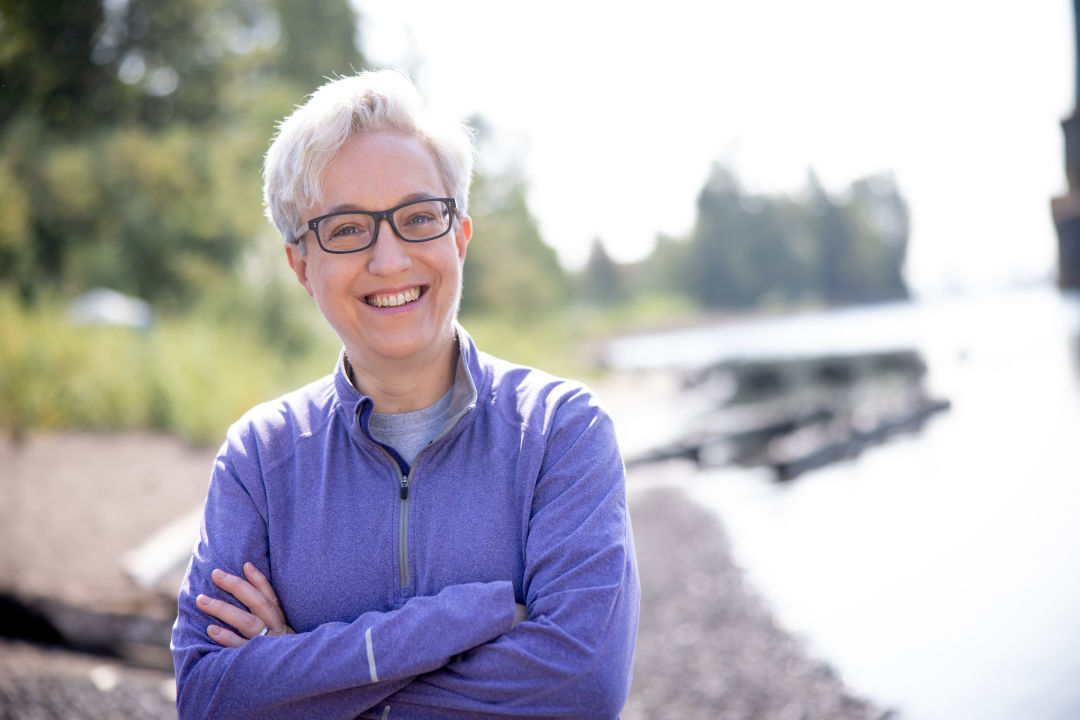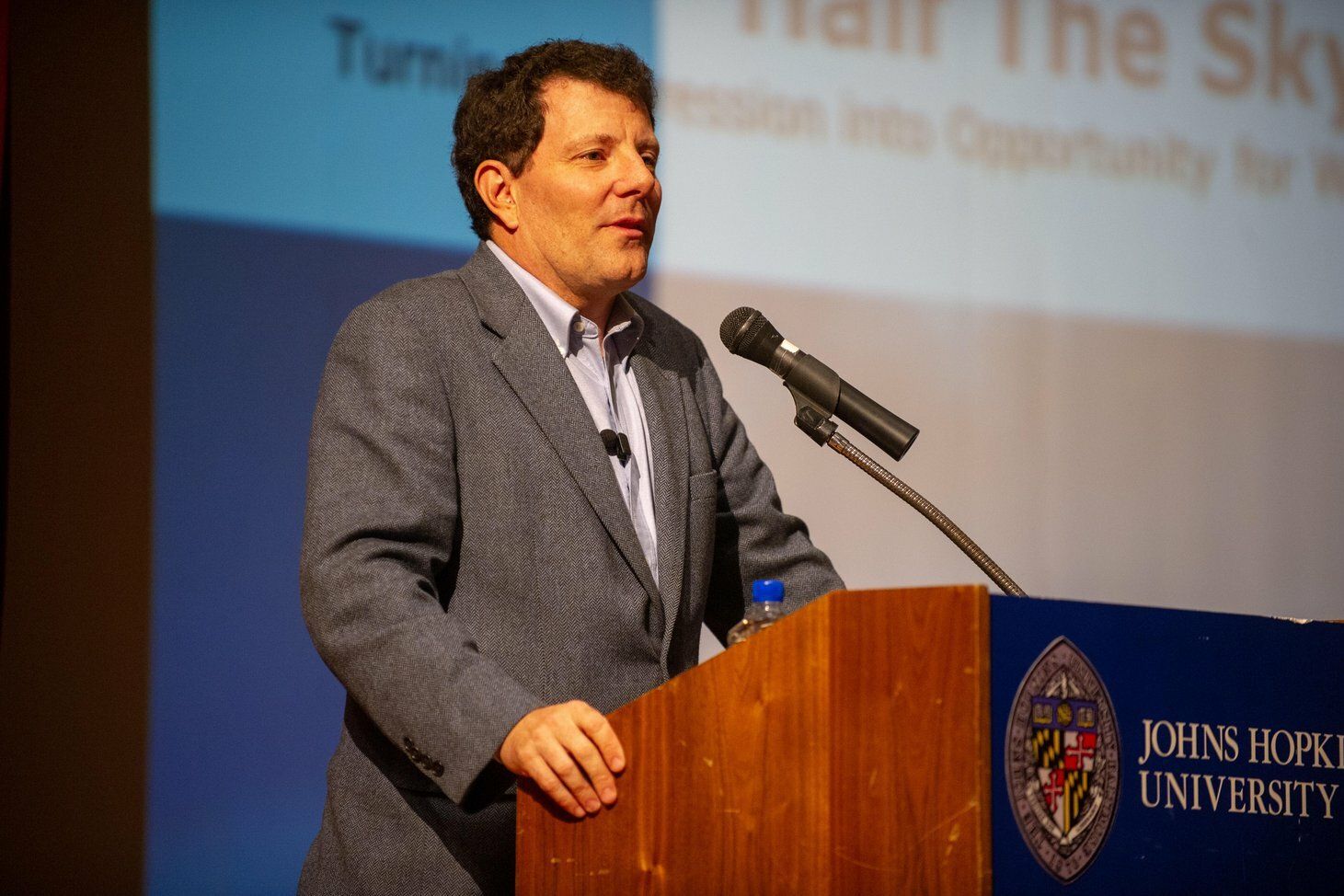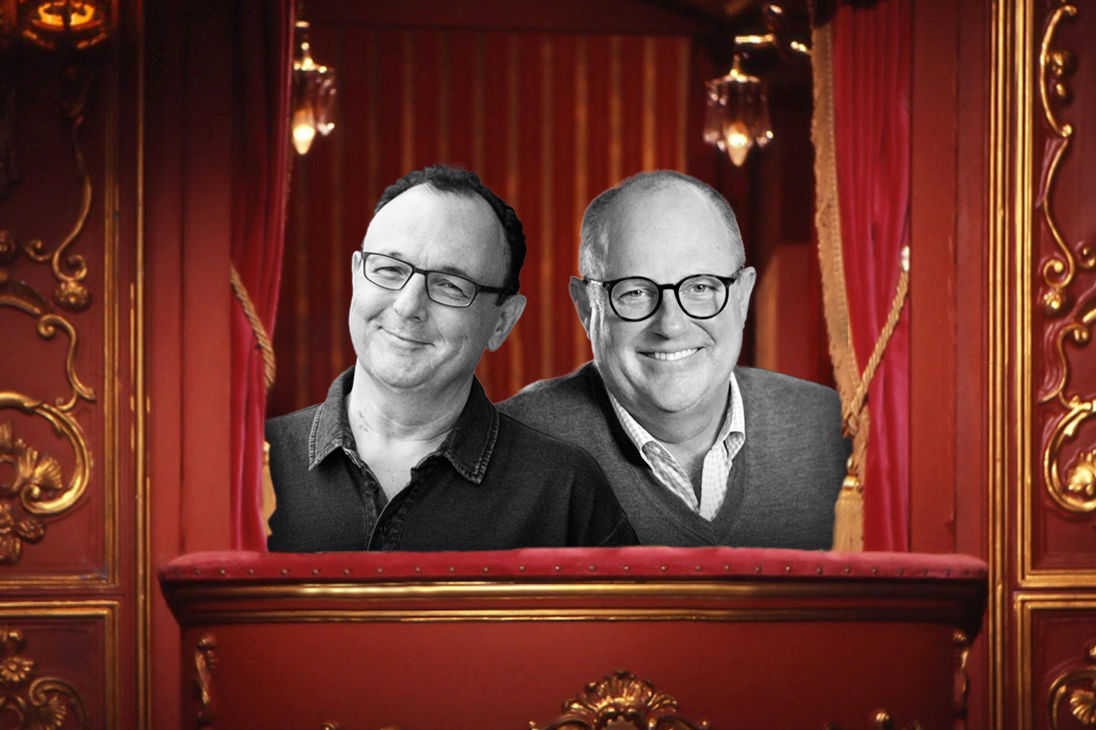Tina Kotek Has Been Ready for Her Close-Up

After nearly nine years as the Speaker of the Oregon House of Representatives, Democrat Tina Kotek of North Portland is running for governor.
Image: Courtesy Tina for Oregon
It’s been a busy week in the race to be Oregon’s next governor, now just a year and change away from a vote and the first time in 20 years that the state has seen such a wide-open contest. Two more contenders threw their hats in the ring this week: State Sen. Betsy Johnson, every Republican’s favorite Democrat, has announced she’ll run as an Independent, and New York Times columnist Nick Kristof all but made it official, announcing his resignation from the paper of record because of his interest in the governorship, albeit “reluctantly.”
Meanwhile, House Speaker Tina Kotek, a Democrat who lives in the Kenton neighborhood, has been plugging away at her campaign since her pre-Labor Day announcement, consolidating support from her fellow electeds (including $10,000 donations from political action committees for State Labor Commissioner Val Hoyle and House Majority Leader Dan Rayfield in just the last two weeks) and locking down the union endorsements that are often pivotal to Oregon races.
Political insiders from both sides of the aisle say Kotek’s got the inside track to be the state’s next governor after so many years in Salem, where she has been the Speaker of the Oregon House since 2013. We talked with her about why she thinks what happens next in Portland matters for the rest of Oregon, if she thinks Gov. Kate Brown made the right choices on COVID policy, and where she goes to seek a little peace and quiet in North Portland.
(Thanks to the wonders of Zoom, we also learned that Kotek, a practicing Catholic, owns a bobblehead of Pope Francis that she picked up on a trip to Washington DC when the pope was also in town; she bought a matching one for Senator President Peter Courtney, which he keeps in his office.)
Portland Monthly: It’s been quite a week in the governor’s race. Any thoughts on the current state of the campaigns?
Kotek: It has been a kind of a bigger week in the news for the governor's race. You know I love democracy. This is an open seat. Voters are going to get a chance to look at a whole bunch of people who want the job to be the next governor of our state. So I'm just focused on being speaker and also, you know, running my own race.
Portland Monthly: As a number of people have pointed out, we haven’t heard much from the governor’s office about the issues facing Portland in the last 18 months, and there are a lot of issues.What role do you think the governor plays in the future of downtown Portland? And what's next for the city, which is clearly at a bit of an inflection point right now?
Kotek: I live in North Portland, I'm out there driving around every day. I see folks living on the street, I feel people's lack of sense of safety around gun violence. In terms of the role of the next governor, there is an importance for all levels of government to be pulling together to solve big problems. And, you know, I think the hard part now is there's a lot of challenges, right? So I think everyone's very focused on whatever's on their plate that day. But I think as our next governor, my goal would be to work with the mayor and the county chair, to figure out how we can solve these challenges together, because every level of government needs to be functioning in a coordinated fashion, if we're going to take on big challenges.
Portland Monthly: So what do you say to the people who would say that the state legislature has been notably disengaged with what's happened in downtown Portland?
Kotek: I don't agree with that premise. What I feel like I've been doing is bringing a strong state partnership from the legislature to work with local communities. When Portland City Hall called and said, ‘Hey, we need some money from ODOT to clean up graffiti and trash along the highways for livability and safety,’ I said, ‘Great.’ I got them $2 million to do that. When the Multnomah County folks said we need to build a Behavioral Health Resource Center in downtown Portland—we got them the money. I personally advocated for $5 million for North Portland to have a bigger and more sustainable winter shelter set up at the Rite-Aid on Lombard.
Portland Monthly: There is a conversation going on in Portland and in Multnomah County about whether it's better to build temporary shelters equipped with behavioral support services and sanitary stations, or whether we really need to keep our eye on the ball of a long-term strategy of affordable housing. What is your take on that from a state perspective?
Kotek: Here's one of the things that I think voters should know about me. I'm not an either/ or person. I'm a both/and person. We have an immediate urgent crisis. People are unsheltered in an unhealthy way and we have to serve them. And that is not sustainable. We also need long-term solutions. I've done my part at the state with the largest investment ever for this two-year budget—$765 million statewide to build more housing. But you have to do both. It is not acceptable that people have no other choice but to live on the street. Frankly, it's a little frustrating for me that this is kind of the dynamic of the conversation right now. Because every one of us elected leaders has a place to go home at night.
Portland Monthly: For the first time in a long time, though, money isn't the problem. It feels like the resources are there. So if it's not the resources, what's your sense of why we can't seem to move forward in a better way? And how can the governor help?
Kotek: I do think it's interesting that while we don't have endless resources, we have a stronger set of resources than we have had in the past. We are switching from this scarcity mentality of never having enough to be like, okay, we have some resources. Now, how do we move it quickly? At some point, you stop discussing and you start doing. You have to move on the solutions you have, whether that's streamlining procurement, streamlining contracting processes, or getting people to focus on the urgency of this issue. My job as governor will be to make sure everybody is operating at their highest potential and making sure we can use those resources.
Portland Monthly: COVID-19 is here to stay on one level or another. So I'm just wondering if I could ask you to think about the state's response to the pandemic. What have we done right? What would you have done differently?
Kotek: (With the 1918) flu it was a three to five year timeframe until things kind of got back to some normalcy. So I think we're at this for a while. I think Governor Brown followed the science. We did the best we could in a set of unknowns that have, you know, changed from week to week. We have been successful in Oregon, in saving thousands and thousands of lives. And I don't think we can forget that. And I think that if there's one thing that really showed up in the pandemic is the disparate impacts on communities of color. Those were apparent very early on, and we just we weren't set up for that. I think there's been a lot of work to correct for that.
Portland Monthly: Oregon is one of only six states right now, alongside DC and other territories, with an indoor mask mandate, and the only one with an outdoor mask mandate for crowded situations regardless of how many people are present. What are your thoughts on this?
Kotek: Obviously states are different. You know, it's interesting to see how other countries have done this. I do support masks. The delta variant and the way it has spread so much more easily than the previous iterations of the virus — we all have to be careful. It is inconvenient, it's not fun. Nobody likes to wear a mask. And I think we need to keep doing it, so we can go hang out with people, and be with our friends and be in some larger group settings. It's a small thing to ask to keep people healthy, and to keep ourselves healthy.
Portland Monthly: Given the strife over the redistricting process in Oregon, I wonder what you might say to people who say, as the governor, you have to be in charge of everybody, not just in charge of Democrats? What about your ability to work with Republicans going forward?
Kotek: When new Republicans join the legislature, I immediately text them or call them. They have my personal cell phone number. Lines of communication are really, really important in this work. The hard part is that the Trump DC style partisan politics have really come to Oregon, right? They're everywhere. And you know, the walkouts and other things that have happened have really created a very challenging environment to do work. I remain undeterred. I will continue to communicate and have an open-door policy. I think, if my colleagues were honest, they would know how hard I've worked to serve and to help them serve their communities.
Portland Monthly: And if you're elected, I think from my research, you'll be the first out lesbian elected governor in the United States. I wonder if you just can talk a little bit about what that means for you? Especially if you think about what’s going on right now in Newberg, for example.
Kotek: When I was working to get Democrats into majority back in 2012, that put me on the path to being the first openly lesbian Speaker of the House anywhere in the country. And at that time, I remember thinking that it's such a privilege and an honor to be first like that. My wife, and I know the importance of that, for all those young folks out there who are trying to figure out who they are—to see somebody in that position is so incredibly important. I didn't have that when I was growing up. And of course, being the first out lesbian governor would also, you know, take that up a notch, right? With Newberg, I'm having flashbacks to the 1980s. But when things slide back, you keep pushing forward.
Portland Monthly: Finally, will you tell us a little about a place that you love in your neighborhood?
Kotek: So the parks in North Portland are amazing. I want to give a shout out particularly to Columbia Park. That's our little refuge when we need a break.




